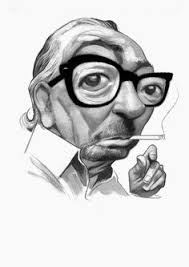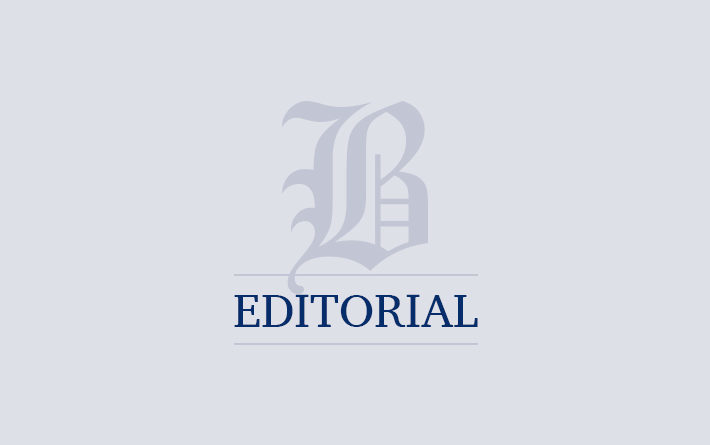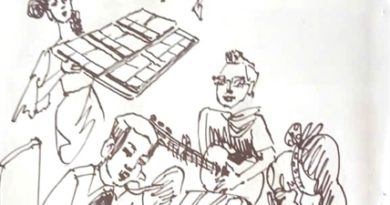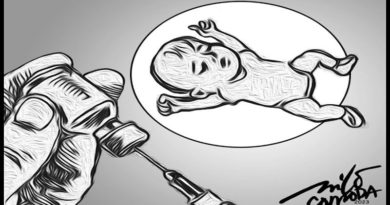EDITORIAL: BANGKOK POST- Don’t let city’s buses go to ruin
.
In less than two months since taking office, Transport Minister Saksayam Chidchob has launched a number of initiatives to ease traffic problems. Some, including reviewing the speed limits, have been challenged.
Last Sunday, the minister suggested removing barricades at expressway and motorway tollgates during peak traffic hours so vehicles using easy passes or “M passes” can go through more quickly during daily rush hours from 6am to 9am and from 3pm to 8pm. The new measure is being trialled at Asoke.
The minister wants to increase the rate at which vehicles can pass through the tollgates from 2-3 cars a minute to 10. However, he should also realise that traffic on the expressway is also the result of poor planning that has created a number of bottlenecks in the system and made congestion unavoidable.
More importantly, the measure is a testament to the perception that Mr Saksayam is prioritising the transport needs of the rich and middle class, leaving those with the lower incomes out in the cold.
———
ADS by Cloud 9:
.
– SPACE RESERVE FOR YOUR ADVERTISEMENT –

.
It is more than clear that his ideas about traffic congestion, speed limits or the proposed shifting of road haulage to night time, as well as changes to expressway development plans are to primarily benefit car owners. His proposal of 15 baht flat-rate fares for electric trains is arguably useful for the white-collar workers of the middle and upper-middle classes. Critics have labelled the proposal a pipe dream, if not a stunt to gain media interest.
But the minister paid little, if any, attention to city buses operated by the Bangkok Mass Transit Authority (BMTA) and private concessionaires, which are the real mass transit option used by the majority of city residents. He once briefly mentioned a plan to cut bus fares but stopped short of offering any concrete details.
———
ADS by Cloud 9:
.
– SPACE RESERVE FOR YOUR ADVERTISEMENT –

.
In fact, two weeks after he started work, bus commuters had to endure a 20% fare increase. The cash-strapped BMTA is planning another hike that by next April would see the cost of a weekly ticket for a non-A/C bus, which has just increased from 100 baht to 120 baht, rise to 150 baht. Fares for air-conditioned buses are also creeping up, meaning heavier burdens on commuters.
Bus fare hikes are one thing, but poor service is another, and the city’s service is not synonymous with comfort, efficiency or reliability.
The cash-strapped BMTA is focusing mainly on cost-cutting and survival, rather than investing in service improvements, while commuters have no choice but to put up with the resulting poor system.
The agency’s failed introduction of E-tickets, which saw a two-billion baht budget poured down the drain, only ended up compounding its debt problem.
The bus service speaks volumes about poor planning. While the city has a number of new roads, the BMTA has stalled in laying on new routes. This forces residents who move to new areas to buy cars to commute, and only results in further congestion. The car population in Bangkok which increases every year now stands at 4.5 million.
———
ADS by Cloud 9:
.
– SPACE RESERVE FOR YOUR ADVERTISEMENT –

.
In past years, the BMTA allocated some routes to private concessionaires which have gotten away with charging higher fares while providing poor service. There have been complaints about the roadworthiness of the vehicles, as well as the behaviour of some drivers and conductors.
In June, the agency, which has accumulated 118 billion baht in debt, announced plans to cut at least 5,000 employees in a restructuring plan which received cabinet approval. Under the plan, the city’s bus service authority will be transferred to the Finance Ministry with the requirement that the BMTA must have surplus earnings before interest, depreciation and amortisation (Ebida) by 2023. Little was mentioned about how buses would be a better choice for city commuters who deserve a safe and comfortable service.
Mr Saksayam may argue that he is obliged to solve traffic congestion which causes economic losses to the city and the country as a whole in terms of increased fuel consumption and travel time. Air pollution, too, is only worsened by incessant jams. Ultimately, however, he must accept that the real cause of traffic congestion are private cars and the best way to solve it is to make public transport a more attractive and efficient alternative for commuters.
EDITORIAL
BANGKOK POST EDITORIAL COLUMN
———
ADS by Cloud 9:
.
– SPACE RESERVE FOR YOUR ADVERTISEMENT –

.
 All photographs, news, editorials, opinions, information, data, others have been taken from the Internet ..aseanews.net | [email protected]
All photographs, news, editorials, opinions, information, data, others have been taken from the Internet ..aseanews.net | [email protected]
For comments, Email to :D’Equalizer | [email protected] | Contributor
.









